It hadn’t even hit bookshelves, and the publication of “Take It Easy: Portland in the 1970s” had already been an unexpected whirlwind for its creator, Portland street photographer John Duncan.
It’s also a long-overdue reward for his job as a cab driver, his interest in photography and his foresight in capturing his life on film – and saving the negatives.
With 130 black-and-white images and a lively first-person narrative, “Take It Easy,” released Monday by Islandport Press, feels like a time capsule of a familiar but elusive moment in the city’s history.
Many of the buildings are recognizable, but the grime has been replaced with shine. Duncan’s photos show Congress Street when it still had department stores and when the dive bars weren’t trendy. From Duncan’s perspective as a cab driver with a camera, good times were part of the scene. These are photos of him hanging with his friends, walking the streets of Portland, riding the ferry to the islands, and hanging on the beach.
“I just started taking pictures, and it surprised me myself, looking back over all this stuff,” said Duncan, now 70. “I had no real plan at the time. I never really expected anything would come of it. But now 50 years later, I have all these negatives.”
The book, and the publicity it has generated have taken him a bit by surprise. He understands nostalgia, but he’s not accustomed to the attention. Always one to go with the flow, he’s enjoying the trip that involves interviews for TV, newspapers and magazines.
“All the publicity has thrust me into this different place. They know who I am without me knowing who they are,” he said.
Duncan’s star turn takes center stage at 5:30 p.m. Monday, when the St. Lawrence Arts Center hosts a book-launch event, with Duncan in conversation with Islandport founder and editor-in-chief Dean Lunt. (Reade Brower, owner of the Portland Press Herald, is the majority owner of Islandport Press.) Tickets are free, and all were reserved quickly. A standing-room-only crowd is expected. Duncan also will sign books from 1-3 p.m. Nov. 20 at the Book Review, 251 Route 1, Falmouth, and from 1-3 p.m. Dec. 11 at Sherman’s of Portland, 49 Exchange St.
“Take It Easy” is a trip back to Portland before the Old Port became the Old Port, and before million-dollar condos, $40 fish filets, $15 cocktails and legal weed. Back then, Portland was a city in decline, and The Maine Mall was the place to be. Duncan, who grew up in Falmouth and graduated high school in 1969 before heading off to Woodstock and then hitchhiking to the West Coast, drove a cab in Portland in the 1970s and took a lot of photos of the people he met and the people he knew – friends, fellow cab drivers, bartenders.
Across moves out West, overseas and always back to Portland, Duncan managed to retain thousands of images, which he has slowly organized. He’s been part of a few exhibitions, and he began sharing his photos on social media in recent years, drawing interest to his collection among the old-Portland crowd. But the attention and interest compounded after Troy Bennett put Duncan and his photos on the front page of the Bangor Daily News last December.
Soon after, Lunt called with a book deal. And less than a year later, that book is out.
Lunt was captivated by a photo in the newspaper of two women dressed for winter walking earnestly in front of State Drug, which occupied the street level of what is now the State Theatre building at Congress and High streets. “There was something about that photo that captured a moment in a whole different way,” Lunt said. “It seemed so different and so compelling, and I said, ‘I have to find this guy. If he has a lot of these, I want to see them.’ ”

Islandport Press publisher Dean Lunt was drawn to this image of women outside what is now the State Theatre building on Congress Street. Photo by John Duncan, courtesy of Islandport Press
Thus began the relationship between the publisher and photographer. Over weeks and then months, Duncan sent Lunt more than 1,000 images, links and downloads of negatives he had scanned, and there were many more. When it became obvious they had a book, Lunt and his editorial team began working with Duncan to compile and organize the photos and write his story.
“Whatever ability he had, he invited you in,” Lunt said. “I don’t know any of these people in his photos, but I am fascinated looking at them.”
Duncan credited Islandport editor Genevieve Morgan for helping him shape the written narrative, which tells about his life before and after the 1970s, including his trip to Woodstock, his journey across the country and to foreign ports – and his return home. Lunt said Duncan’s life has been one of adventure “that is almost incomprehensible today. The idea in 2021 of picking up and hitchhiking across America and stopping wherever to get a job to get money and then move on is unbelievable, remarkable.”
Duncan said he had sometimes felt insecure among other photographers, and credited the Portland photo community for encouraging him to show his work. In addition to Bennett, Duncan cited former Portland Press Herald photographer Jack Milton as an influence, as well as Nick Gervin, a fellow Portland street photographer.
In an email, Gervin said he was drawn to Duncan’s inquisitiveness and his work ethic, across decades and geography.
“But it’s his Portland photographs that initially caught my attention. It’s clear to me, when looking at John’s work, that he is driven by his curiosity and his desire for social connection,” Gervin wrote. “His empathy for his fellow neighbors lends him a personal connection to his subjects that is key to not only his success as a photographer, but also to his positive outlook on life in general. I am grateful to have made such a good friend in him.”
Duncan moved away after he made the images that appear in “Take It Easy,” returning to Portland in the late 1980s. When he returned, the city had plenty of empty storefronts, particularly on Congress Street, but it had begun changing. The Old Port had started to emerge as a shopping district and a place for nightlife. The life that had been sucked out of the city by the mall in the early 1970s had begun to return.
From Duncan’s perspective, the Portland of today is a double-edged sword. It’s wonderful to see the vibrancy, he said. “I haven’t met anyone who said, ‘I don’t like Portland.’ We have food, we have beer, we have cannabis. What’s not to like? We have become this whole kind of thing,” he said.
On the other hand, young people can’t afford to live here. Will the high cost of housing drain the city of its life, as the mall did in the 1970s?
“It’s going to be interesting to see how it all turns out,” he said, flashing the wisdom of age and perspective.
Send questions/comments to the editors.


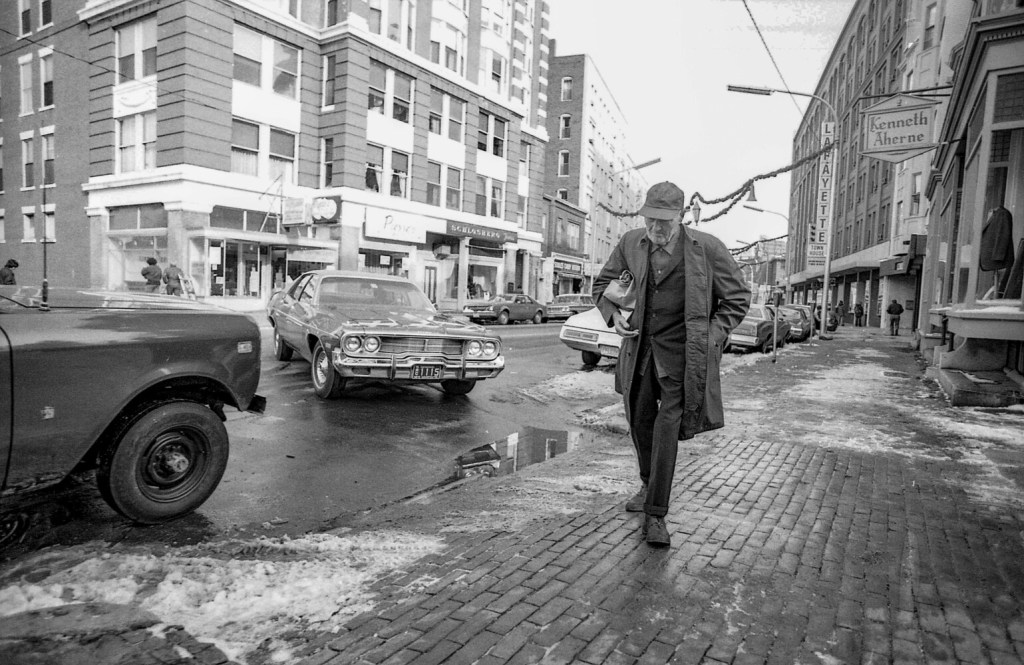
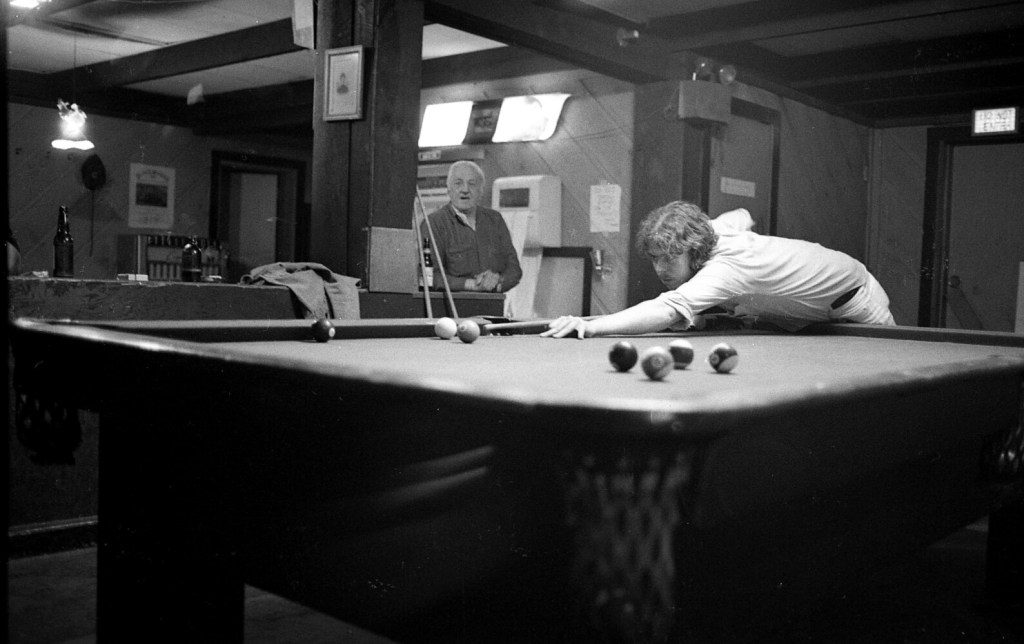
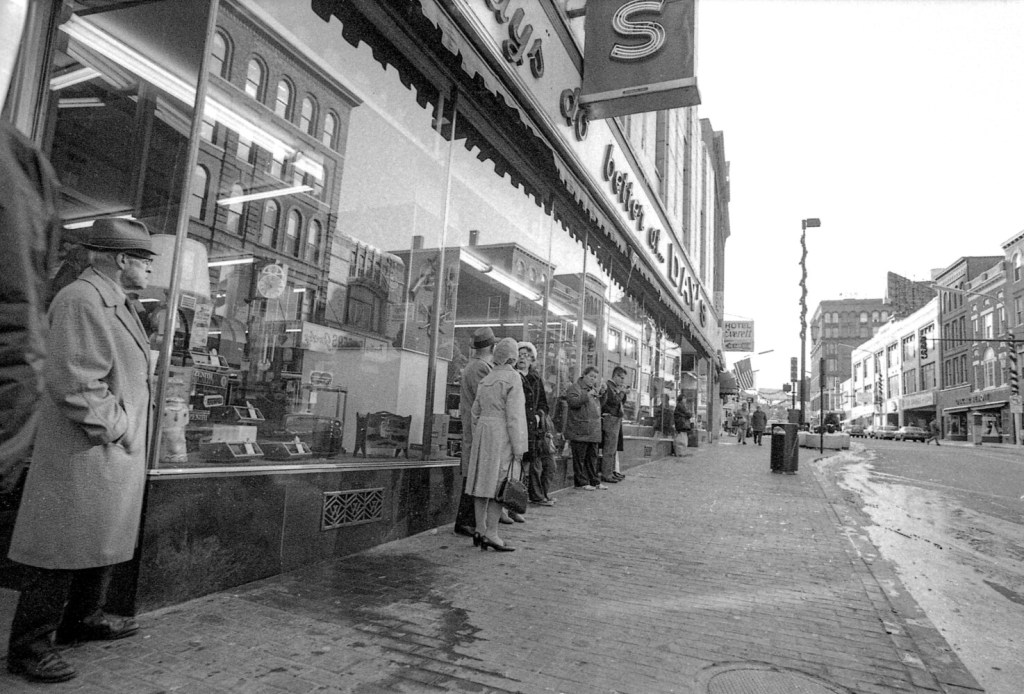
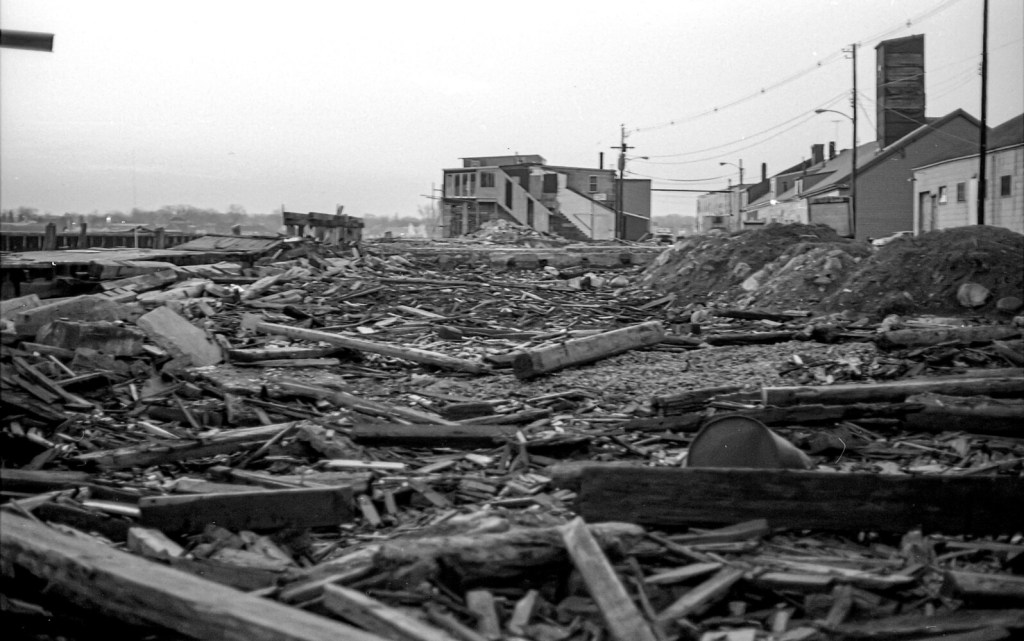
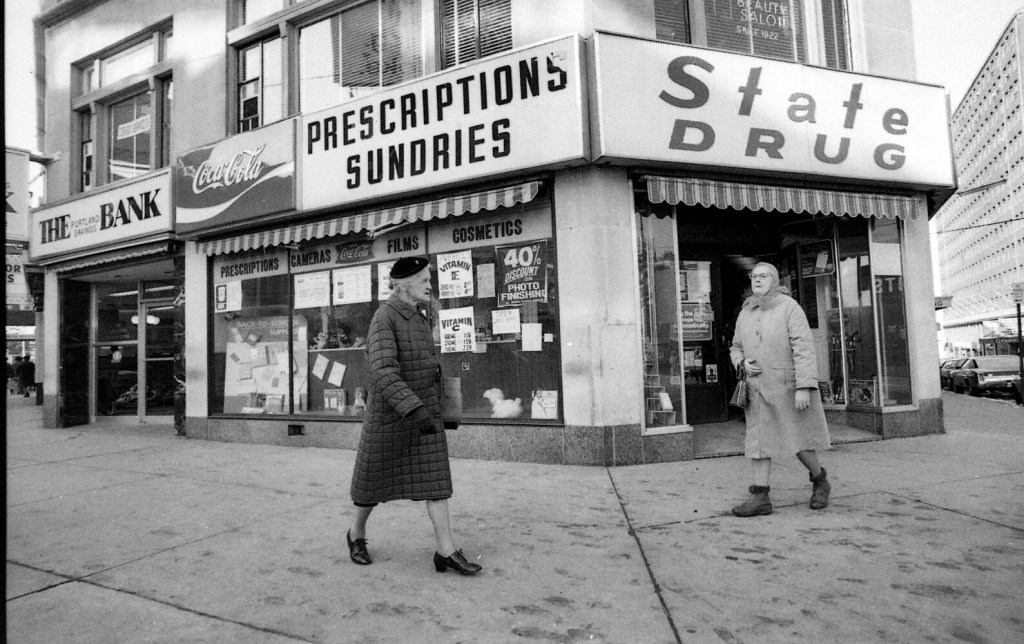
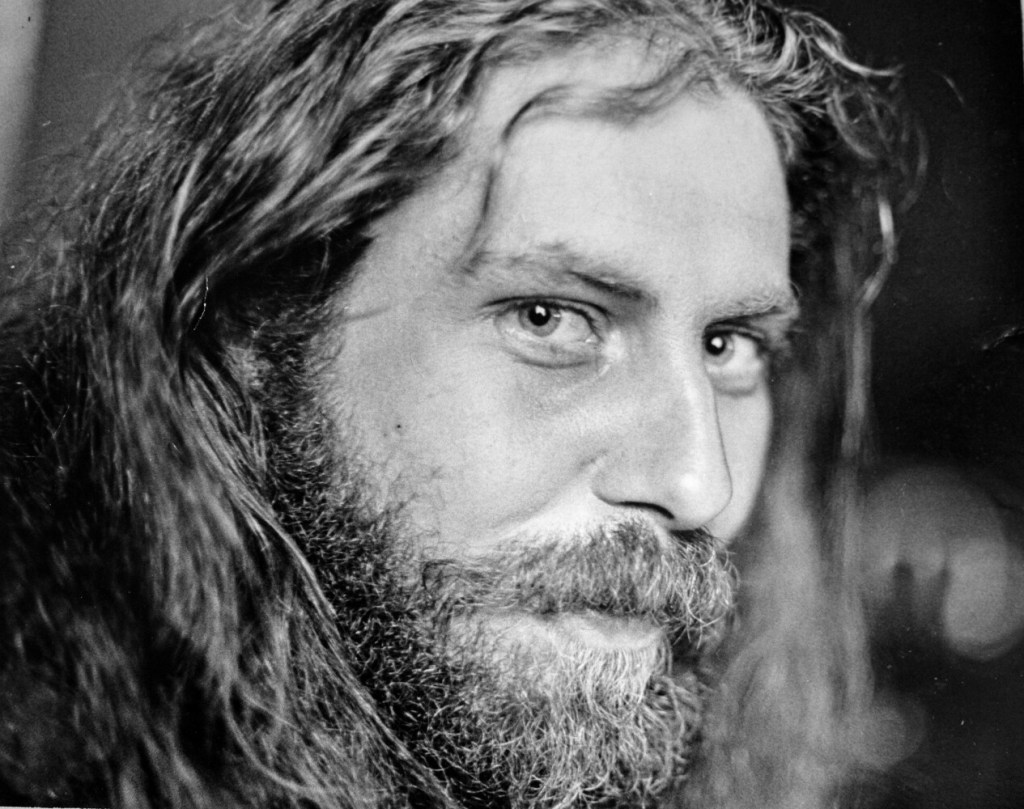
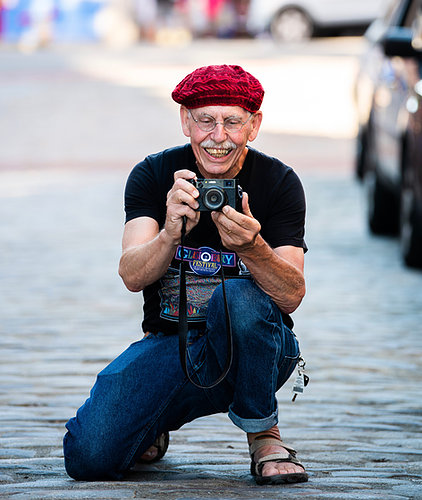
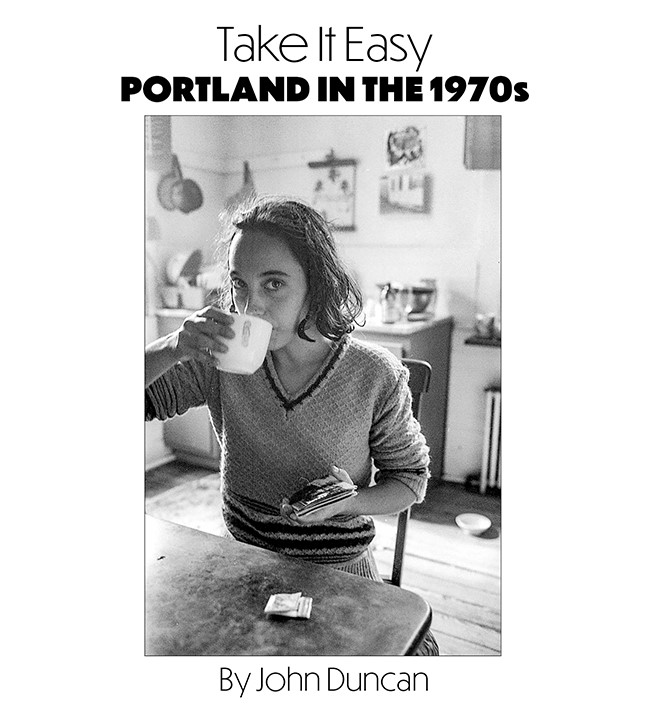

Success. Please wait for the page to reload. If the page does not reload within 5 seconds, please refresh the page.
Enter your email and password to access comments.
Hi, to comment on stories you must . This profile is in addition to your subscription and website login.
Already have a commenting profile? .
Invalid username/password.
Please check your email to confirm and complete your registration.
Only subscribers are eligible to post comments. Please subscribe or login first for digital access. Here’s why.
Use the form below to reset your password. When you've submitted your account email, we will send an email with a reset code.